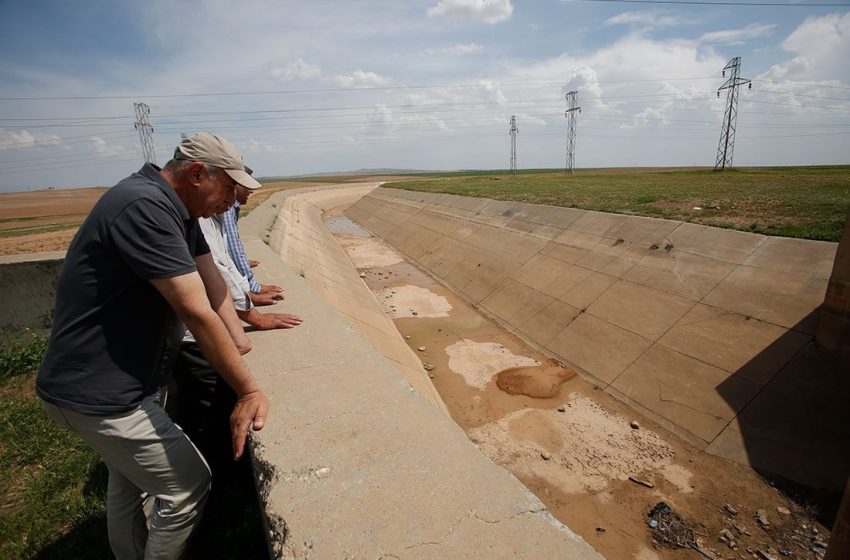Water scarcity to affect agriculture in Iraq

Part of a dried-up North Al-Jazeera irrigation system in Iraq. Photo: Reuters
Baghdad (IraqiNews.com) – The lack of water supplies in Iraq may lead to the disruption of some of the development plans through which the country is trying to maximize non-oil resources.
Despite the heavy rains that fell on Iraq this year, the drylands absorbed all this rain.
These rains saved the wheat crop this winter. An official at the Iraqi Ministry of Agriculture said on Thursday that Iraq has bought three million tons of wheat from farmers so far, and the local wheat crop is expected to reach between 4 and 4.5 million tons this season.
However, water scarcity threatens rice cultivation. An Iraqi official at the Ministry of Agriculture stated on Thursday that rice cultivation has been restricted this season in central and southern areas of the country because of a lack of water supplies, Reuters reported.
Earlier last month, Iraqi officials confirmed that Baghdad must end old irrigation methods that waste water, and stop the cultivation of amber rice, which must remain submerged in water throughout the summer months.
Amber rice cultivation has been reduced by about 90 percent since last year and has almost disappeared from markets in Iraq, despite the great demand locally and in the Gulf countries.
In the Kurdistan region of Iraq, known for its fertile mountains, groundwater levels are significantly declining. Officials said that new water wells are reaching a depth of 800 meters, while a depth of 300 meters was enough to find water until a few years ago.
Restrictions have been imposed on the drilling of new water wells in the Kurdistan region of Iraq.
Last March, the Iraqi Ministry of Water Resources warned that the country’s water reserves had reached critical levels as neighboring countries were not pumping Iraq’s water share, which led to a decrease in the water level in the Tigris and Euphrates rivers.
